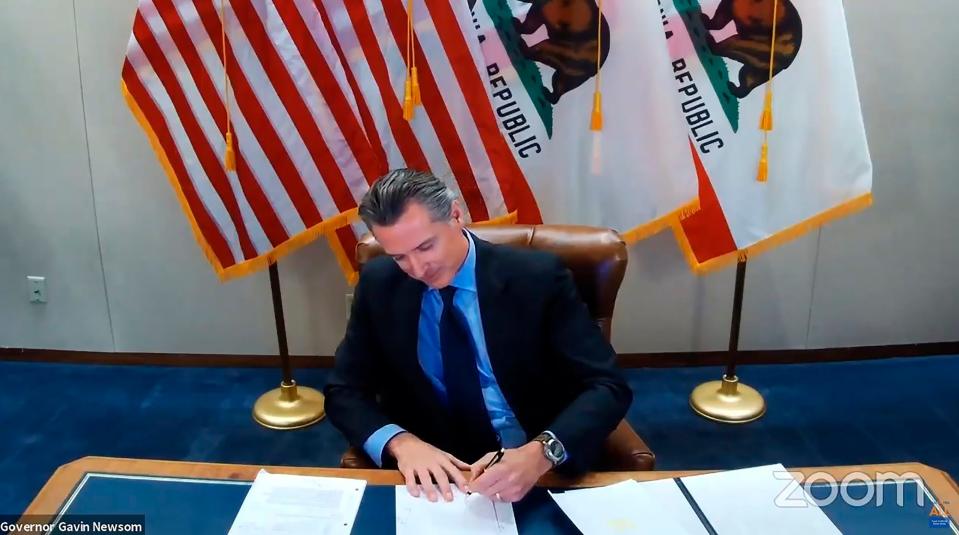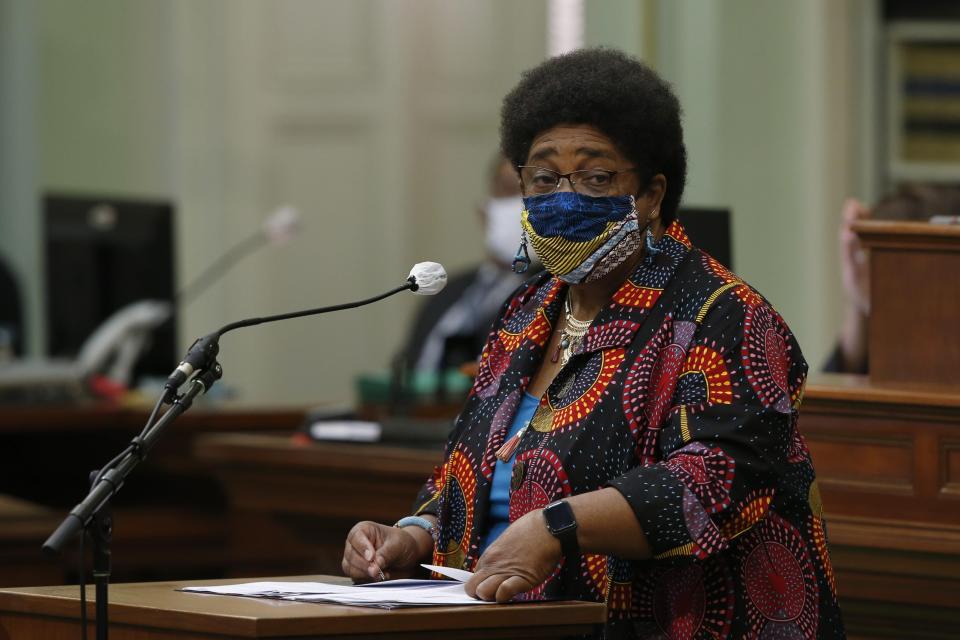California to study, consider reparations for Black residents after landmark law passed
California has become the first state to adopt a law that requires a study of how the state could provide reparations to Black residents and the descendants of slaves.
Gov. Gavin Newsom signed the historic law Wednesday that creates a nine-member task force dedicated to coming up with recommendations for what form reparations might take and who would be eligible to receive them. The task force must have its first meeting no later than June 1 and submit its recommendations to the state Legislature one year later.
"As a nation, we can only truly thrive when every one of us has the opportunity to thrive," Newsom said in a statement. "Our painful history of slavery has evolved into structural racism and bias built into and permeating throughout our democratic and economic institutions."
'The timing is right for reparations': Cities propose reparations amid nationwide unrest
Reparations could come in the form of cash payments, student loan forgiveness, public works projects or job training. The law doesn't limit the payment to slavery but requires the task force give special consideration for Black people who are descendants of slaves.

The law was championed by Assemblywoman Shirley Weber, a Democrat and chair of California's Legislative Black Caucus. Weber said Wednesday that while many are waiting for federal guidance on reparations, California has a responsibility to lead the way.
"California has come to terms with many of its issues, but it has yet to come to terms with its role in slavery," she said in a news conference after Newsom signed the bill. "After 400 years, we still have that impact.
"If we can do it others can do it also," she said.
Although California entered the Union in 1850 as a free state, owners were allowed to bring their enslaved people into the state, and state law required runaway slaves be arrested and returned to their owners.

The law was signed amid months of nationwide protests against systemic racism and police brutality, but Weber emphasized that this bill was written long before the death of George Floyd and the onset of the coronavirus pandemic.
After Floyd died in police custody in May, some mayors and local officials proposed ways to examine the impact of slavery and help atone for it, including reparations.
Officials in Providence, Rhode Island, have pledged some form of reparations for Black people, indigenous people and people of color. Officials in Asheville, North Carolina, also promised reparations for Black residents by investing in marginalized Black communities.
State legislatures in Texas, New York and Vermont have considered studying reparations, but none has passed a measure. No country has given monetary compensation to African descendants of the trans-Atlantic slave trade, according to experts.
Reparations bill gets new attention: Could other nations provide a blueprint?
A similar proposal to study reparations for Black Americans was first introduced in Congress in 1989. It never passed, but Congress held a hearing on the proposal last year.
The U.S. government partially funded German reparations to Holocaust victims after World War II. And in 1988, the federal government set up a reparations program for Japanese-Americans who were held in concentration camps during World War II.
Contributing: Deborah Barfield Berry and Nicquel Terry Ellis, USA TODAY; The Associated Press
Follow N'dea Yancey-Bragg on Twitter: @NdeaYanceyBragg
This article originally appeared on USA TODAY: California to consider slavery reparations after historic law


